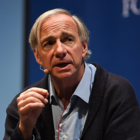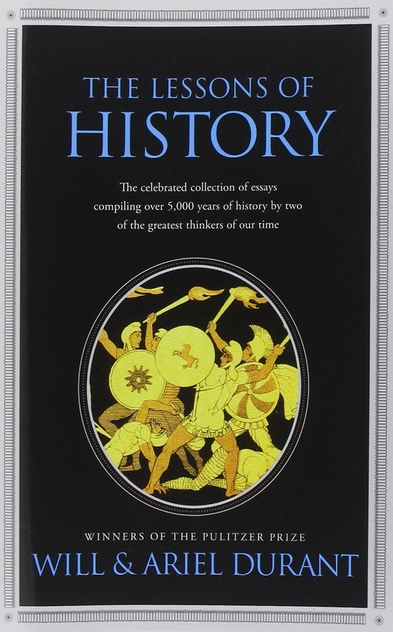
The Fullest Ray Dalio Book List: 45 Recommendations
1
лайк
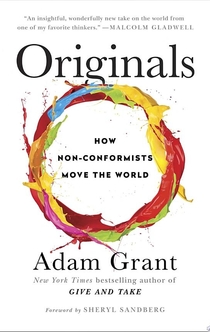
Originals
The #1 New York Times bestseller that examines how people can champion new ideas—and how leaders can fight groupthink, from the author of Give and Take and co-author of Option B“Reading Originals made me feel like I was seated across from Adam Grant at a dinner party, as one of my favorite thinkers thrilled me with his insights and his wonderfully new take on the world.” —Malcolm Gladwell, author of Outliers and The Tipping Point“Originals is one of the most important and captivating books I have ever read, full of surprising and powerful ideas. It will not only change the way you see the world; it might just change the way you live your life. And it could very well inspire you to change your world.” —Sheryl Sandberg, COO of Facebook and author of Lean InWith Give and Take, Adam Grant not only introduced a landmark new paradigm for success but also established himself as one of his generation’s most compelling and provocative thought leaders. In Originals he again addresses the challenge of improving the world, but now from the perspective of becoming original: choosing to champion novel ideas and values that go against the grain, battle conformity, and buck outdated traditions. How can we originate new ideas, policies, and practices without risking it all? Using surprising studies and stories spanning business, politics, sports, and entertainment, Grant explores how to recognize a good idea, speak up without getting silenced, build a coalition of allies, choose the right time to act, and manage fear and doubt; how parents and teachers can nurture originality in children; and how leaders can build cultures that welcome dissent. Learn from an entrepreneur who pitches his start-ups by highlighting the reasons not to invest, a woman at Apple who challenged Steve Jobs from three levels below, an analyst who overturned the rule of secrecy at the CIA, a billionaire financial wizard who fires employees for failing to criticize him, and a TV executive who didn’t even work in comedy but saved Seinfeld from the cutting-room floor. The payoff is a set of groundbreaking insights about rejecting conformity and improving the status quo.
Смотреть все
0

Who's in Charge?
The prevailing orthodoxy in brain science is that since physical laws govern our physical brains, physical laws therefore govern our behaviour and even our conscious selves. Free will is meaningless, goes the mantra; we live in a 'determined' world.Not so, argues the renowned neuroscientist Michael S. Gazzaniga as he explains how the mind, 'constrains' the brain just as cars are constrained by the traffic they create. Writing with what Steven Pinker has called 'his trademark wit and lack of pretension,' Gazzaniga ranges across neuroscience, psychology and ethics to show how incorrect it is to blame our brains for our behaviour. Even given the latest insights into the physical mechanisms of the mind, he explains, we are responsible agents who should be held accountable for our actions, because responsibility is found in how people interact, not in brains.An extraordinary book, combining a light touch with profound implications, Who's in Charge? is a lasting contribution from one of the leading thinkers of our time.
Смотреть все
0

Changing Minds
Publisher's description: Minds are exceedingly hard to change. Ask any advertiser who has tried to convince consumers to switch brands, any CEO who has tried to change a company's culture, or any individual who has tried to heal a rift with a friend. So many aspects of life are oriented toward changing minds--yet this phenomenon is among the least understood of familiar human experiences. Now, eminent Harvard psychologist Howard Gardner, whose work has revolutionized our beliefs about intelligence, creativity, and leadership, offers an original framework for understanding exactly what happens during the course of changing a mind--and how to influence that process. Drawing on decades of cognitive research and compelling case studies--from famous business and political leaders to renowned intellectuals and artists to ordinary individuals--Gardner identifies seven powerful factors that impel or thwart significant shifts from one way of thinking to a dramatically new one. Whether we are attempting to change the mind of a nation or a corporation, our spouse's mind or our own, this book provides insights that can broaden our horizons and improve our lives. Howard Gardner is the John H. and Elisabeth A. Hobbs Professor of Cognition and Education at the Harvard Graduate School of Education and senior director of Harvard Project Zero. The recipient of a MacArthur Prize Fellowship and 20 honorary degrees, he is the author of more than 20 books.
Смотреть все
0
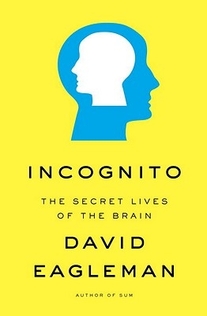
Incognito
A NEW YORK TIMES BESTSELLER *Why does your foot hit the brake pedal before you are conscious of danger ahead?* *Why is it so difficult to keep a secret?* *How is it possible to get angry at yourself: who, exactly, is mad at whom?* In this sparkling and provocative book, renowned neuroscientist David Eagleman navigates the depths of the subconscious brain. Taking in brain damage, plane spotting, dating, drugs, beauty, infidelity, synaesthesia, criminal law, artificial intelligence and visual illusions, INCOGNITO is a thrilling subsurface exploration of the mind and all its contradictions.
Смотреть все
0
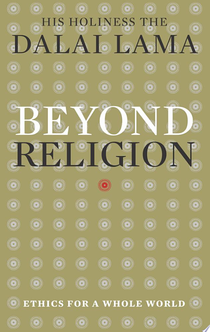
Beyond Religion
In 1999 His Holiness The Dalai Lama published the bestselling Ancient Wisdom: Modern World, which addressed the question of ethics for the new millennium. A decade later, His Holiness enters the contemporary debate about religion vs atheism, and returns to the theme of ethics with a major new work: Beyond Religion: ethics for a whole world.In this thought-provoking new book he argues that religion is not a necessity for pursuing a spiritual life. Rather, focusing on tolerance and understanding between religions, as well as tolerance and understanding between believers (of any faith) and non-believers is the way forward. The way to achieve such an approach, he proposes, is through a system of secular ethics grounded in a deep appreciation of our common humanity. Aimed particularly at the general reader, Beyond Religion: ethics for a whole world is a modern-day polemic which outlines those ethics he believes should be central to our lives.
Смотреть все
0

The Spiritual Brain
Do religious experiences come from God, or are they merely the random firing of neurons in the brain? Drawing on his own research with Carmelite nuns, neuroscientist Mario Beauregard shows that genuine, life-changing spiritual events can be documented. He offers compelling evidence that religious experiences have a nonmaterial origin, making a convincing case for what many in scientific fields are loath to consider—that it is God who creates our spiritual experiences, not the brain. Beauregard and O'Leary explore recent attempts to locate a "God gene" in some of us and claims that our brains are "hardwired" for religion—even the strange case of one neuroscientist who allegedly invented an electromagnetic "God helmet" that could produce a mystical experience in anyone who wore it. The authors argue that these attempts are misguided and narrow-minded, because they reduce spiritual experiences to material phenomena. Many scientists ignore hard evidence that challenges their materialistic prejudice, clinging to the limited view that our experiences are explainable only by material causes, in the obstinate conviction that the physical world is the only reality. But scientific materialism is at a loss to explain irrefutable accounts of mind over matter, of intuition, willpower, and leaps of faith, of the "placebo effect" in medicine, of near-death experiences on the operating table, and of psychic premonitions of a loved one in crisis, to say nothing of the occasional sense of oneness with nature and mystical experiences in meditation or prayer. Traditional science explains away these and other occurrences as delusions or misunderstandings, but by exploring the latest neurological research on phenomena such as these, The Spiritual Brain gets to their real source.
Смотреть все
0

Welcome to Your Brain
- When I drink, am I killing my brain cells?- Does cramming for an exam work?- Why can't you tickle yourself?- Can you improve your brain with video games?- Why is looking at a photograph harder than playing chess?Written with a light touch, but using hard science, Welcome to your Brain will answer all the questions you've ever had about how that amazing three pounds in your skull works - and how you can help it work better. Written by two top neuroscientists, they dispel all the myths (such as we only ever use 10% of our brains!), and show how understanding your brain can also be useful.Full of practical tips for improving your noggin, as well plenty of stories to amuse your friends, Welcome to your Brain will be the most accessible, and the most fascinating, book on your grey matter that you could ever hope to read.
Смотреть все
0
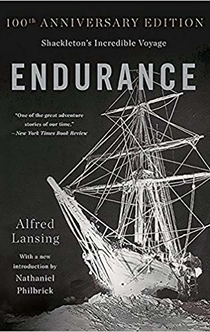
Endurance: Shackleton's Incredible Voyage
The harrowing tale of British explorer Ernest Shackleton's 1914 attempt to reach the South Pole, one of the greatest adventure stories of the modern age
0

A Magic Web: The Forest of Barro Colorado Island
0

From Bacteria to Bach and Back: The Evolution of Minds
"A supremely enjoyable, intoxicating work." —Nature How did we come to have minds? For centuries, poets, philosophers, psychologists, and physicists have wondered how the human mind developed its unrivaled abilities. Disciples of Darwin have explained how natural selection produced plants, but what about the human mind? In From Bacteria to Bach and Back, Daniel C. Dennett builds on recent discoveries from biology and computer science to show, step by step, how a comprehending mind could in fact have arisen from a mindless process of natural selection. A crucial shift occurred when humans developed the ability to share memes, or ways of doing things not based in genetic instinct. Competition among memes produced thinking tools powerful enough that our minds don’t just perceive and react, they create and comprehend. An agenda-setting book for a new generation of philosophers and scientists, From Bacteria to Bach and Back will delight and entertain all those curious about how the mind works.
Смотреть все
0

The Serengeti Rules
Now the subject of a feature film that the New York Times calls "spellbinding"How does life work? How does nature produce the right numbers of zebras and lions on the African savanna, or fish in the ocean? How do our bodies produce the right numbers of cells in our organs and bloodstream? In The Serengeti Rules, award-winning biologist and author Sean Carroll tells the stories of the pioneering scientists who sought the answers to such simple yet profoundly important questions, and shows how their discoveries matter for our health and the health of the planet we depend upon.One of the most important revelations about the natural world is that everything is regulated—there are rules that regulate the amount of every molecule in our bodies and rules that govern the numbers of every animal and plant in the wild. And the most surprising revelation about the rules that regulate life at such different scales is that they are remarkably similar—there is a common underlying logic of life. Carroll recounts how our deep knowledge of the rules and logic of the human body has spurred the advent of revolutionary life-saving medicines, and makes the compelling case that it is now time to use the Serengeti Rules to heal our ailing planet.A bold and inspiring synthesis by one of our most accomplished biologists and gifted storytellers, The Serengeti Rules is the first book to illuminate how life works at vastly different scales. Read it and you will never look at the world the same way again.
Смотреть все
0

The Upside of Inequality
The scourge of America’s economy isn't the success of the 1 percent—quite the opposite. The real problem is the government’s well-meaning but misguided attempt to reduce the payoffs for success. Four years ago, Edward Conard wrote a controversial bestseller, Unintended Consequences, which set the record straight on the financial crisis of 2008 and explained why U.S. growth was accelerating relative to other high-wage economies. He warned that loose monetary policy would produce neither growth nor inflation, that expansionary fiscal policy would have no lasting benefit on growth in the aftermath of the crisis, and that ill-advised attempts to rein in banking based on misplaced blame would slow an already weak recovery. Unfortunately, he was right. Now he’s back with another provocative argument: that our current obsession with income inequality is misguided and will only slow growth further. Using fact-based logic, Conard tracks the implications of an economy now constrained by both its capacity for risk-taking and by a shortage of properly trained talent—rather than by labor or capital, as was the case historically. He uses this fresh perspective to challenge the conclusions of liberal economists like Larry Summers and Joseph Stiglitz and the myths of “crony capitalism” more broadly. Instead, he argues that the growing wealth of most successful Americans is not to blame for the stagnating incomes of the middle and working classes. If anything, the success of the 1 percent has put upward pressure on employment and wages. Conard argues that high payoffs for success motivate talent to get the training and take the risks that gradually loosen the constraints to growth. Well-meaning attempts to decrease inequality through redistribution dull these incentives, gradually hurting not just the 1 percent but everyone else as well. Conard outlines a plan for growing middle- and working-class wages in an economy with a near infinite supply of labor that is shifting from capital-intensive manufacturing to knowledge-intensive, innovation-driven fields. He urges us to stop blaming the success of the 1 percent for slow wage growth and embrace the upside of inequality: faster growth and greater prosperity for everyone.
Смотреть все
0

The Undoing Project: A Friendship That Changed Our Minds
“Brilliant. . . . Lewis has given us a spectacular account of two great men who faced up to uncertainty and the limits of human reason.” —William Easterly, Wall Street Journal Forty years ago, Israeli psychologists Daniel Kahneman and Amos Tversky wrote a series of breathtakingly original papers that invented the field of behavioral economics. One of the greatest partnerships in the history of science, Kahneman and Tversky’s extraordinary friendship incited a revolution in Big Data studies, advanced evidence-based medicine, led to a new approach to government regulation, and made much of Michael Lewis’s own work possible. In The Undoing Project, Lewis shows how their Nobel Prize–winning theory of the mind altered our perception of reality.
Смотреть все
0
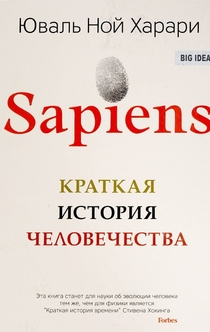
Sapiens
Соединив естественнонаучный подход с историческим, доктор Юваль Харари ставит под сомнение многие общепринятые идеи, обнаруживает связи между событиями прошлого и нашими сегодняшними опасениями и рассматривает отдельные события в едином глобальном контексте. Прослеживая, как развивающееся человечество влияло на глобальную экосистему и анализируя судьбы империй, доктор Харари заглядывает в будущее. За последние несколько десятилетий мы научились изменять закон естественного отбора, управлявший жизнью на протяжении 4 миллиардов лет, и у нас впервые появляется способность пересоздавать не только окружающий мир, но и самих себя. Кем же мы хотим стать, и куда это нас приведет?
Смотреть все
0

A Whole New Mind
New York Times Bestseller An exciting--and encouraging--exploration of creativity from the author of When: The Scientific Secrets of Perfect Timing The future belongs to a different kind of person with a different kind of mind: artists, inventors, storytellers-creative and holistic "right-brain" thinkers whose abilities mark the fault line between who gets ahead and who doesn't. Drawing on research from around the world, Pink (author of To Sell Is Human: The Surprising Truth About Motivating Others) outlines the six fundamentally human abilities that are absolute essentials for professional success and personal fulfillment--and reveals how to master them. A Whole New Mind takes readers to a daring new place, and a provocative and necessary new way of thinking about a future that's already here.
Смотреть все
0
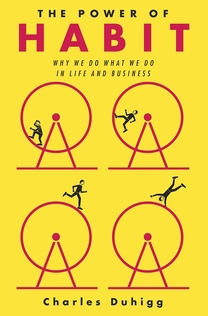
The Power of Habit
A New York Times Bestseller and instant classic illuminating how we can change our lives by changing our habits. Groundbreaking new research shows that by grabbing hold of the three-step "loop" all habits form in our brains--cue, routine, reward--we can change them, giving us the power to take control over our lives. In The Power of Habit, award-winning New York Times business reporter Charles Duhigg takes readers inside labs where brain scans record habits as they flourish and die; classrooms in which students learn to boost their willpower; and boardrooms where executives dream up products that tug on our deepest habitual urges. Full of compelling narratives that will appeal to fans of Michael Lewis, Jonah Lehrer, and Chip and Dan Heath, The Power of Habit contains an exhilarating argument: our most basic actions are not the product of well-considered decision making, but of habits we often do not realize exist. By harnessing this new science, we can transform our lives.
Смотреть все
0
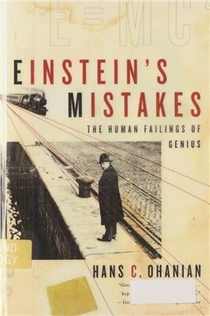
Einstein's Mistakes: The Human Failings of Genius
“A thought-provoking critique of Einstein’s tantalizing combination of brilliance and blunder.”—Andrew Robinson, New Scientist Never before translated into English, the Manimekhalai is one of the great classics of Indian culture.
0

Leadership the Outward Bound Way
CLICK HERE to download two excerpts, "Managing Change in the Workplace" and "Uniting Your Team" fromLeadership the Outward Bound Way * Teaches the basic principles that Outward Bound uses to nurture leadership in thousands of program participants in the United States each year * Shows how those same principles apply in everyday contexts, from a backpacking trip through the mountains to a strategy meeting in the boardroom * Challenges and inspires you to apply these principles of good leadership through thought-provoking case-study exercises, based on real-life situations Outward Bound has been teaching leadership internationally for more than sixty years. In the United States alone, some 700,000 people have learned life-changing, transferable leadership skills and strategies through Outward Bound experiences. You don't need to summit a mountain to learn these invaluable skills. Now anyone can benefit from Outward Bound USA's collective wisdom and experience, as articulated by its top leadership experts. Leadership the Outward Bound Way introduces readers to the fundamentals of good leadership: communicating effectively, building trust, building teams, overcoming fear, taking risks, and making decisions. The book explores how these leadership basics can be applied in different areas of life-in outdoor travel and recreation, in the office or the boardroom, and in community work or volunteerism. The text is punctuated by accounts of real-life events during Outward Bound programs, call-outs of key points and helpful tips and case-study exercises. This leadership approach is based on a teaching method developed at the Harvard Business School that challenges and informs readers about how to respond to real-life leadership situations.
Смотреть все
0

The Rise and Fall of the Great Powers
"What are your top 5 books of all time? Principles doesn't count ;)The Lessons of History by Will and Ariel Durant, Hero of a Thousand Faces by Joseph Campbell, The River Out of Eden by Richard Dawkins, The Rise and Fall of the Great Powers by Paul Kennedy--gee there are so many that are running through my mind."
Смотреть все
0

River Out of Eden
"What are your top 5 books of all time? Principles doesn't count ;)The Lessons of History by Will and Ariel Durant, Hero of a Thousand Faces by Joseph Campbell, The River Out of Eden by Richard Dawkins, The Rise and Fall of the Great Powers by Paul Kennedy--gee there are so many that are running through my mind."
Смотреть все
0
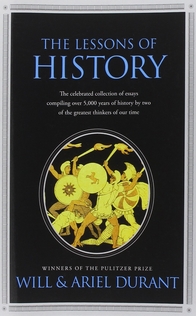
The Lessons of History
"What are your top 5 books of all time? Principles doesn't count ;)The Lessons of History by Will and Ariel Durant, Hero of a Thousand Faces by Joseph Campbell, The River Out of Eden by Richard Dawkins, The Rise and Fall of the Great Powers by Paul Kennedy--gee there are so many that are running through my mind."
Смотреть все
0
